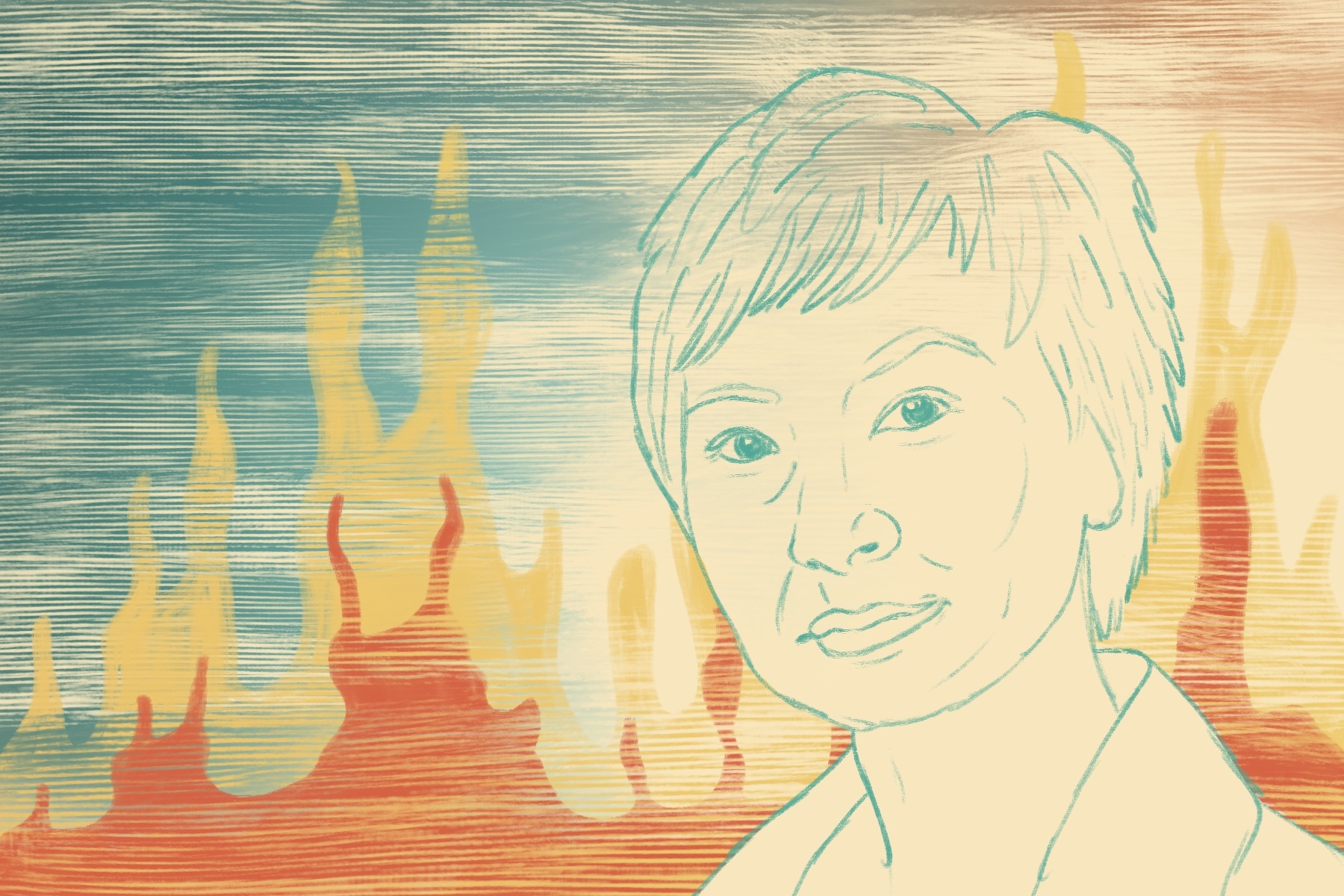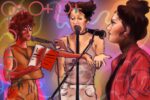Cathy Park Hong is the author of three poetry collections. Her 2020 book of essays, “Minor Feelings: An Asian American Reckoning,” has won the National Book Critics Circle Award for autobiography and was long-listed for the Andrew Carnegie Medal for Excellence.
“Minor Feelings” is many things — a memoir, social commentary, self-analysis, a study on culture and a major reckoning with society. Hong uses her own struggle as a Korean American growing up in a country that consistently made her feel inferior, and transforms it into a lens to expose the flaws of dominant society and amplify a broader Asian American experience — hence the powerful subtitle, “An Asian American Reckoning.”
The title “Minor Feelings” is based on the negative emotions that racialized individuals experience because of the contradiction between American optimism and one’s racialized identity. It occurs when one’s perception of reality is consistently questioned and dismissed, leading to a sense of paranoia, doubt, shame and melancholy, caused by assurances that things are so much better when one knows the truth — that things are exactly the same. This contradiction leads to feelings of failure and self-doubt.
Minor feelings are also worsened by the fact that such negative emotions are often viewed as ungrateful, hostile, depressing and jealous by the dominant society. As Hong explains, “Our feelings are overreactions because our lived experiences of structural inequity are not commensurate with their deluded reality.”
Characteristically, minor feelings are often left out of the American literary canon because they don’t agree with the traditional narrative of survival and self-sufficiency. “Unlike the organizing principles of a bildungsroman,” Hong explains, “minor feelings are not generated from major change but from lack of change, in particular, structural racial and economic change. Rather than using racial trauma as a dramatic stage for individual growth, the literature of minor feelings explores the trauma of a racist capitalist system that keeps the individual in place.”
Throughout “Minor Feelings” Hong’s voice is deeply personal, such as when she recounts her dealings with depression, her formative friendships with two other Asian American women, and her experiences with racism; it is also deeply analytical as she looks at her memories with astute attention in order to glean wisdom and meaning that feels pressing and universal.
She also turns her perceptive eye onto the wider culture, such as when she explains the recognition she felt watching the comedian Richard Pryor and how he used his awareness of his white audience to fuel his comedy. “When African American entertainers in the forties told tall tales for laughs backstage, they called these backstage jokes lies,” says Hong. “Pryor told lies — by spinning stories, ranting, boasting, and impersonating everything … And by telling lies, Pryor was more honest about race than most poems and novels I was reading at the time.”
Hong rediscovered Pryor in the midst of a depression that was caused, if not wholly, partly by her minor feelings, and the connection she felt to his performances helped her recognize these emotions more clearly. She ended up transcribing all of his comedy routines by hand.
Hong touches upon history — writing about Japanese internment camps, the 1882 Chinese exclusion act, the invention of the term “Asian American” by student activists in the late ‘60s, the model minority myth and so on, weaving facts into personal narrative, into penetrating analysis, into commentary and back again to form one revealing, sincere, powerful whole. She ruminates on contemporary figures and events, such as the viral video of David Dao being wrestled out of his airplane seat by security guards, the movie “Crazy Rich Asians,” the manufactured screen memory of Wes Anderson’s “Moonrise Kingdom,” an essay on the work and devastating death of novelist, director and poet Theresa Hak Kyung Cha and much more — examining everything from a minority’s discerning viewpoint and extracting myriad valuable truths.
In the end, her deep introspection, fueled by an analysis of others’ lives, history and culture, leads to an awareness that is both melancholic and powerful. “For as long as I could remember, I have struggled to prove myself into existence,” she writes. “In the popular imagination, Asian Americans inhabit a vague purgatorial status: not white enough nor black enough; distrusted by African Americans, ignored by whites, unless we’re being used by whites to keep the black man down…But while I may look impassive, I am frantically paddling my feet underwater, always overcompensating to hide my devouring feelings of inadequacy.”
Hong’s lifetime of racialized experience, observation and study culminates in a book full of revelation and invaluable insight. Every essay is on target, full of weight, wisdom, power and validation for the racialized minority.
This book is also Hong’s way of rebelling against her own instinct to earn and seek white approval, an impulse placed into her by this society. In “Minor Feelings” she makes sure that her words and thoughts aren’t curated for the favor of white institutions, which consistently repress truthful ethnic stories in favor of shaping them for the white imagination; writers of color have always had to act gracious and appreciative so that white people would be comfortable enough to give their work attention.
However, it is difficult: “Even to declare that I’m writing for myself would still mean that I’m writing to a part of me that wants to please white people,” she reflects. It is a train of thought that captures how racialization can make a trap out of one’s own mind — constantly in a loop, unsure and questioning. Or, as Franz Fanton wrote, which Hong quotes, an “infernal circle.”
Hong’s words are invaluable for their wisdom as social critique and for their potential to bring comfort to Asian Americans who have not yet begun to understand their vague, nebulous position in American society. She is also quick to acknowledge that her personal experience is just one of many. Asian Americans are a wide range of peoples, cultures and experiences, and many Asian Americans probably find that their experience is completely different from Hong’s.
However, “Minor Feelings” is not meant to be an assertion about every Asian American’s experience, but a starting point and invitation for other Asian Americans to begin thinking about and adding in their unique experiences to the discussion as well. By telling and ruminating upon her own life and thoughts, Hong opens up a space for other Asian Americans to do the same, so that we may continue to productively evaluate Asian Americans’ complicated place in American society — which has for too long been left out of mainstream discourse.

















